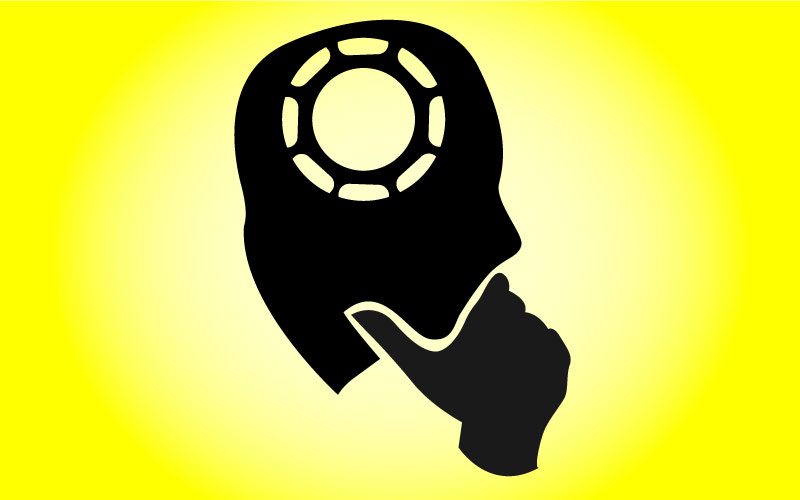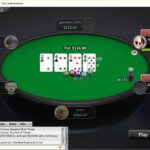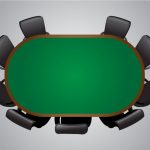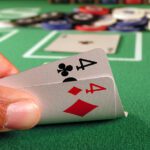In the context of poker, preparation could mean a number of different things, but we’re going to focus specifically on a few instances here. First, we’re going to look at how to and the advantages of preparing when you make a bet or raise. Second, we’ll expand this to all betting decisions. Finally, we’ll look at preparing our sessions in a much more general sense. Preparation is a relatively simple topic that we can use to relate to much more elusive ones, so it’s a good place to start.
We’ll start our discussion of preparation in a small contained environment that we can more or less totally control: a single aggressive betting decision. Tommy Angelo uses a great example when we talks about the idea of anticipation:
In a headsup pot, when you bet or raise, your opponent can only fold, call, or raise. If he folds, your next betting decision is not until the next hand. If he calls, your next betting decision is not until the next street. If he raises – and only if he raises – you must act now. That is why, when you bet or raise, there is strategically nothing to anticipate except a raise, and therefore, if you have not anticipated a raise, you not only made a mistake, you made the only mistake possible.
Mr. Angelo’s goal here is to help avoid whatever anxiety or other emotion is triggered when we are raised unexpectedly by planning ahead. If we decide what to do when we are raised before we enter "the moment", and if we can stick to that decision, then we immediately gain. This simple example shows the relationship between preparation’s strategic and psychological benefits.
Normally, we make an evaluation or do some analysis and come up with what we think is the appropriate choice when facing a decision. Often there will be a series of events that can unfold as a result of our choice that can create psychological trouble for us. When we have psychological trouble, our ability to perform evaluation and analysis suffer, so we would like to avoid making decisions while under that stress. We do this by making our decisions for these potentially stressful situations in advance. In Mr. Angelo’s example above, if we are raised then we can be placed under some stress (no matter how little) which will affect our decision-making. Therefore, the act of preparing our decision by planning ahead for the most stressful variations is clearly profitable, with the added benefit of avoiding unnecessary stress.
So our general theme when preparing a decision is to look ahead for the most stressful ways things can happen and decide what we will do should those situations come about. Mr. Angelo’s example above covers case where we are betting or raising, but what about the other betting (and even non-betting) decisions? If we check heads-up, similarly we should be preparing for the case in which he bets. However, we could also think ahead to what happens if he checks behind and certain cards come on the next street (if there is a next street). We can also anticipate different bet sizes when preparing a bet, raise or check if we are playing a big bet game.
For those with tilt issues, we can prepare other decisions as well. Suppose we are on the river facing a bet, and we are going to prepare our decision to call. We can think ahead to the most stressful possible result of calling and plan what we are going to do. Say we call and our opponent turns over a hand that 4-outed us on the river by calling two pot-sized bets on the flop and turn with nothing but a gutshot. We can prepare for this possible result by reminding ourselves ahead of time that if that is the case then he played the hand in a very unprofitable way and that we really want him playing it like that. Even if this preparation only lowers our suffering by 10%, that will put a dent in our tilt, which will put a dent in our C game, which is profitable.
When preparing a specific decision, it’s pretty clear that we should at least be considering the potential ways things can unfold that are stressful. If we wish to get a bit more general, we can find ways to prepare ourselves for scenarios that have the potential to be stressful, even if we don’t know specifically why. As an example, poker sessions potentially contain stressful moments, so we could prepare for our sessions by taking a few minutes to clear our head before we sit down to play. This could be in the form of taking a walk, listening to some specific music, meditation, or whatever else. The important part is probably to just pick something that is an improvement over doing nothing, and stick to it.
With this structure of this theme in mind, we can transcend poker and apply this to our everyday lives by anticipating and preparing for the stressful moments.
Submit your review | |









